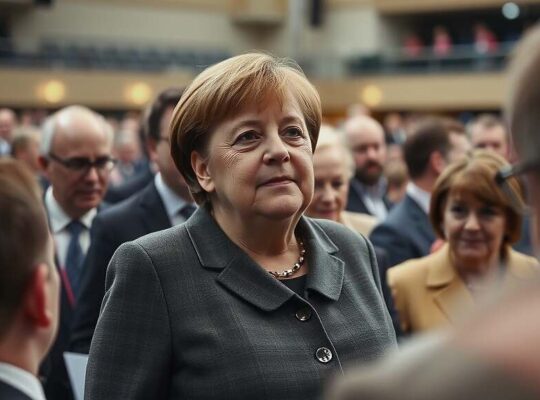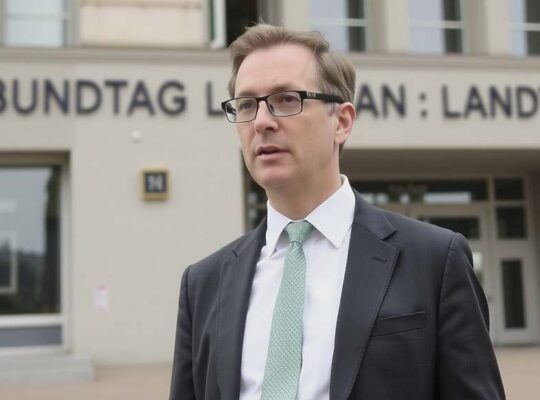A deepening crisis within the Brandenburg state parliament is exposing fault lines within the Alternative for Germany (AfD) and threatening the stability of the ruling coalition government. Four of the party’s fourteen representatives publicly announced their departure from the AfD on Tuesday, citing mounting concerns over the party’s internal dynamics and escalating pressure on dissenting voices.
The four lawmakers – Jouleen Gruhn, Melanie Matzies, Reinhard Simon and André von Ossowski – articulated their decision in a joint statement, alleging a concerning shift towards authoritarian tendencies within the AfD. They claimed a climate of increasing pressure has stifled open debate and marginalized diverse perspectives within the party. This fracture underscores a long-simmering dispute surrounding media state treaties, which has repeatedly strained relations within the fragile political landscape.
Remarkably, the departing representatives intend to remain in the state parliament as independent members, maintaining their parliamentary seats but severing ties with the AfD. This maneuver complicates the situation significantly, as the coalition between the Social Democrats (SPD) and AfD currently holds a precarious majority with only four seats more than the opposition.
The defection throws into question the coalition’s cohesion and potential longevity. Political analysts suggest the loss of four representatives, even as independents, will weaken the government’s ability to pass legislation and could empower opposition parties to challenge its agenda. This unfolding split reveals a deeper internal struggle within the AfD, raising substantial questions about the party’s direction and its credibility as a viable coalition partner, especially as the debate surrounding the media state treaties remains unresolved and continues to generate significant political friction. The situation demands careful navigation to avoid a complete collapse of the governing alliance.












